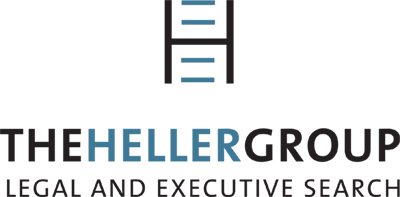Let’s face it. Interview processes can feel intimidating for candidates at all ages and stages of their careers. However, it is important to remember that an interview process is just as much an opportunity for you to learn about the potential employer as it is for them to learn about you!
As a job seeker today, your priorities and expectations are likely different than those who came before you. You may wish to know what a firm or organization’s position is regarding topics such as work-life balance, company culture, and career development opportunities. Diversity, Equity and Inclusion (“DE&I”) has become a priority for jobseekers, evidenced by a survey which revealed 76% of job-seekers and employees in the US prioritize working for companies that value and prioritize diversity, equity and inclusion in their hiring, promoting and work culture.[1] Even employees who do not identify as members of diverse or equity seeking group prioritize DE&I as it helps all employees feel safe, respected and connected by and to their colleagues.
Anecdotes from my 2L Recruit Experience
Having just gone through the structured Toronto 2L Recruit myself, I can speak firsthand to the real struggle of, on one hand, feeling the pressure to *just* land a job, but on the other, being authentic and true to myself by ensuring that *if* I land, I do so somewhere that promotes a culture and embodies values that align with who I am. It can seem impossible to try and strike a balance between impressing your interviewer by showcasing your stellar personality and top-notch skills while also asking hard-hitting questions that attract deeper than surface level answers.
The Elephant in the Room – Asking About DE&I Can be Difficult
Broaching the topic of DE&I can feel intimidating – candidates may worry that asking about DE&I may be perceived as impolite, taboo, or confrontational. While candidates may want to avoid appearing too pushy or “aggressive”, I fully support the belief that an organization who would consider such questions as “pushy” or “aggressive” might not be the right match for you in the long term anyways.
Asking the “Right” Questions
I, similar to most candidates, wanted to take a peek behind the curtain because, at first glance, most if not all firms had accessible information about their DE&I programs and policies on their websites and social media. This made it really challenging to first, differentiate between them, and second, to gauge which firms were implementing measures that are actually effective, and those that were less so. Moreover, it felt redundant to ask in the interview what kinds of programs and policies they offered, even if you were doing so to see which were widely known and applied, out of fear of appearing unprepared or having not done your research (a sticking point which could hurt your chances).
Some good advice that I received was to make the most out of the time I had with each firm by asking questions that are actually helpful to you and that provides an objective measure by which you can compare the firms. A strategy that worked for me was identifying a more specific topic within DE&I that I was interested in and particularly passionate about. A topic that I really cared about, for example, was how the firms promote and support the growth and professional development of women lawyers.
Tip #1: Ask “How” and “Why” questions, rather than “Do” or “Does” questions.
An essential ingredient to asking pointed questions is to be as specific as possible! For example, instead of asking, “Does the firm/management at the firm prioritize implementing policies or programs that promotes the growth and development of women?” I instead would ask, “How does your firm/upper management prioritize and promote the growth and development of women?”. This simple question led to a spectrum of answers that were measurable against one another to a certain extent. Framing questions in this way promotes a “show don’t tell approach”. Unlike employers, it might be strange for us candidates to explicitly ask behavioural or competency-based questions where the employer has to give “an example of a time when” but that doesn’t mean it’s impossible to ask questions that insinuate you are asking for an example.
Tip #2: Ask about specific metrics or data related to DE&I initiatives.
A follow up question, if it hadn’t been included in the response to that first question, might be to ask about certain “measures” of diversity and equality. For example, I might ask how women are represented at the partnership level, or how many women hold upper or executive management positions.
Tip #3: Be curious and encourage an open dialogue.
Try to ask questions about challenges the organization/firm has faced in implementing certain DE&I initiatives and policies. Or, ask about how they have measured or plan to measure the success of such initiatives. These kinds of questions open the floor to a conversation that will give you perspective on how the organization or firm values those topics. Comparisons can be drawn between a firm or organization that takes time to give you a thoughtful, transparent, and honest response and one that may brush your question aside or provide a more surface level answer.
Tip #4: Avoid Assumptions.
While DE&I is something we hear a lot about, it would be a mistake to assume that everyone and every firm or organization’s understanding of what it means is the same. While specific and targeted questions as mentioned above are important, it may also be valuable to understand your interviewer’s perspective and knowledge level. You may ask your interviewer generally what diversity, equity and inclusion means to them or even how they personally have been impacted by DE&I issues.
Prioritizing finding a “good fit” in your job search should be paramount. We spend a significant amount of time at work and therefore ensuring that a prospective employer promotes a culture that you believe in is an important ingredient to long-term job satisfaction. Evaluating an organization or firm’s perspective on and commitment to DE&I is a great place to start in determining what kind of culture or values you can expect to see if you were to start there as an employee. I would encourage all candidates, especially law students who are fresh to the legal profession, to approach these questions with confidence! Moreover, asking about these issues sends a message to firms and organizations that these issues are important to candidates and talent retention overall which is essential for affecting the change we want to see in the profession. As a final note of reassurance, know that firms who do value DE&I should and will respect and be impressed by your engagement and courage, which is a great impression to leave as a prospective candidate.
[1] https://www.glassdoor.com/blog/glassdoors-diversity-and-inclusion-workplace-survey/


